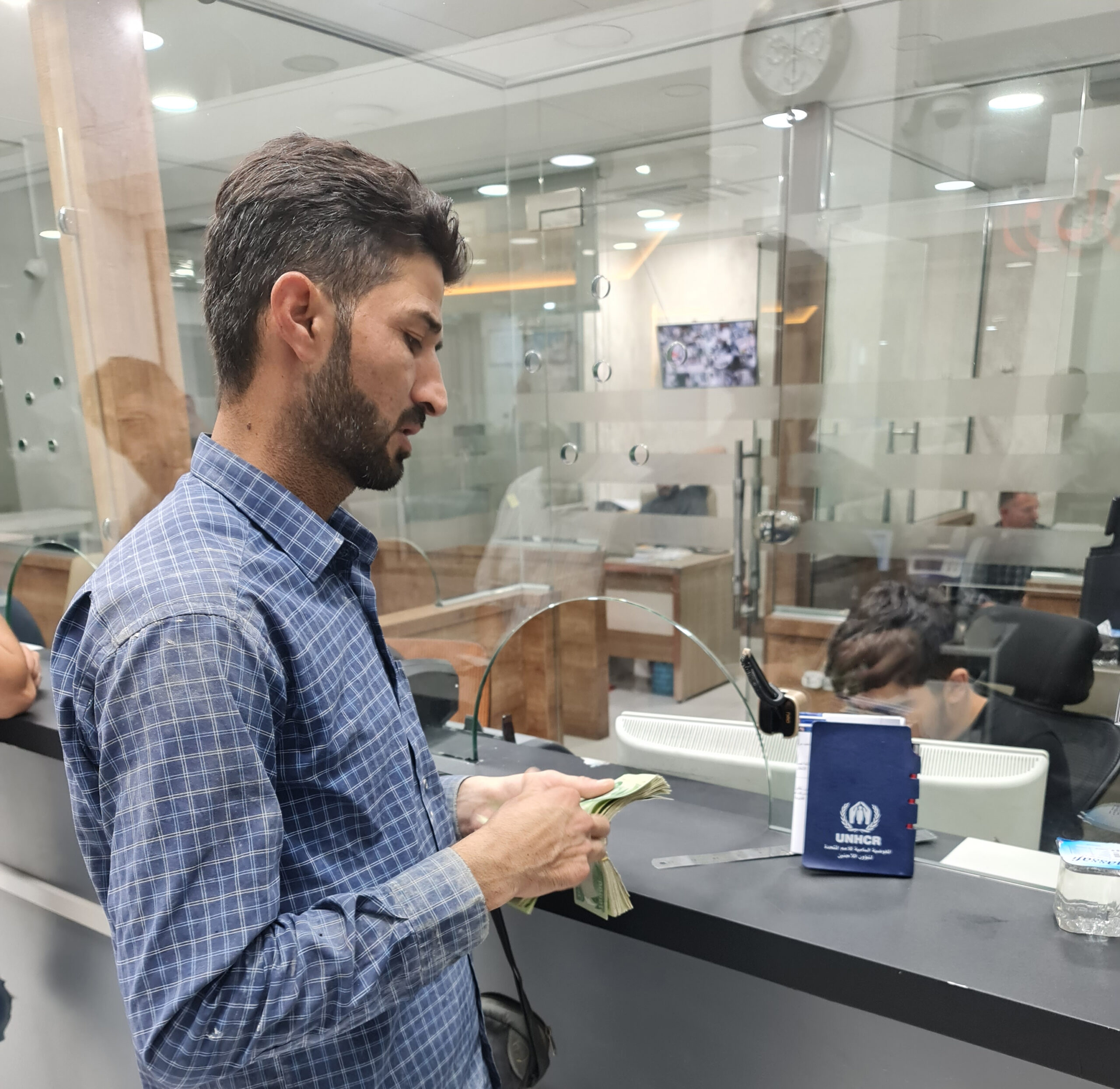UNHCR provides cash assistance to the most socio-economically vulnerable refugees and asylum seekers in Iraq. Many of the recipients of UNHCR’s cash assistances are single mothers, people with disabilities, or survivors of gender-based violence. Most use UNHCR’s cash assistance to contribute to covering their basic needs allowing them to pay rent, buy food and other household essentials. This reduces the risk of vulnerable groups from falling into dire poverty and decreases the risk of people resorting to harmful coping mechanisms reducing food intake and accumulating debt.
Cash assistance provides refugees and asylum seekers with greater dignity and choice in how to prioritize and meet their needs. It is also the most cost-effective manner of providing assistance and and, when refugees reside in a place with a functioning economy, allows refugees to buy goods in local stores and pay for local services. When refugees contribute to the local economy, host communities see a stake in their presence, which helps foster social cohesion.
Most refugees in Iraq receive cash assistance through EyePay, a biometric authentication system that enhances identification accuracy, speeds up cash delivery and reduced fraud risks. Refugees who have not yet registered their iris scan or who live in areas without access to EyePay services receive cash assistance via mobile money transfers, enabling UNHCR to support refugees in hard-to-reach areas.
In the last quarter of 2024, UNHCR rolled out a new targeting approach for its cash assistance programme based on socio-economic vulnerabilities of refugees and asylum seekers. The updated targeting model integrates socio-economic factors with specific protection needs, particularly targeting persons with disabilities, female-headed households, children at risk and survivors of and refugees at risk of violence.
In total in 2024, UNHCR provided cash assistance to approximately 56,000 refugees and asylum-seekers who were assessed to be socio-economically vulnerable.

